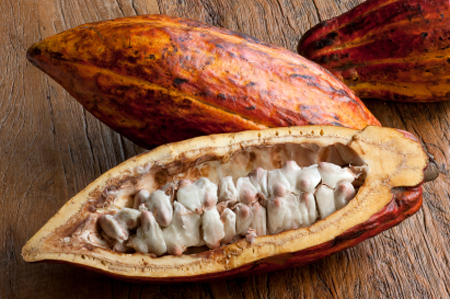Why Brexit Could Mean More Expensive Chocolate
Category: Cocoa
 (BBC) – If you like chocolate, Brexit and future trade negotiations should matter to you. This is because Ivory Coast is the world’s largest producer of cocoa beans – and it currently does most of its business with the European Union, where the beans are processed to make chocolate and cocoa powder. The UK is a nation of chocolate lovers. At the moment it imports the bulk of its chocolate products from the EU, and relatively little from Ivory Coast directly.
(BBC) – If you like chocolate, Brexit and future trade negotiations should matter to you. This is because Ivory Coast is the world’s largest producer of cocoa beans – and it currently does most of its business with the European Union, where the beans are processed to make chocolate and cocoa powder. The UK is a nation of chocolate lovers. At the moment it imports the bulk of its chocolate products from the EU, and relatively little from Ivory Coast directly.
Many cocoa bean exporters in Ivory Coast are worried about the impact of Brexit, as prices are set in pound sterling, which has fallen sharply since the vote to leave the EU, so the value of Ivory Coast’s cocoa sales has dropped.
But trade experts think the UK’s exit from Europe may in the long run be an opportunity for the West African nation to restructure and improve its trade deals.
Fourth-largest consumer of chocolate
If the UK imposes tariffs on EU imports, this could mean the price of chocolate rising.
For Abidjan-based financial expert Kadi Fadika-Coulibaly, this is key.
“It would be silly for Ivory Coast to not focus on building better relations with the UK, given that it is the fourth-largest consumer of chocolate products,” she says.
Image captionThese are the cocoa beans still fresh in their pod
Tina Blazquez-Lopez, a financial lawyer in London, says Brexit also allows African countries to reassess their current trade deals.
As it stands, trade between Ivory Coast and the EU is currently free of tariffs.
The EU encourages the African continent to open up approximately 80% of its market to its imports in exchange for tariff-free access to the European market for African goods.
Critics say that this favours the EU as in many cases, tariff-free entry into Africa means that imports end up being cheaper than locally made products and this undermines local efforts to industrialise.
Ms Blazquez-Lopez’s view is that existing agreements assume a level playing field.
“In reality, African economies simply cannot compete with Europe and therefore unrestricted EU imports into their markets are unsustainable.”
Ivory Coast and chocolate:
It produces 37% of the world’s cocoa beans
Its total cocoa export revenue is $3.6bn a year
55% of its cocoa beans are exported to the EU, worth $2bn a year
Only 3% its cocoa beans are exported directly to the UK worth, $102m
Source: The Economic Complexity Observatory
Jean-Louis Billon, Ivory Coast’s commerce minister, agrees that Brexit presents a chance to renegotiate trade deals.
He says the EU is good for Ivory Coast and is likely to remain the country’s main trade partner, but says the West African nation is also keen to open up trade with new markets.
“I think it is time for African countries to move to the next level, and start being industrialised countries. If we remain competitive, our products will get the access we need in the EU and in the UK,” the minister says.
“We have specific products that you cannot find in the UK, if you do not trade with us.”
The big hurdle for the UK when it comes to trade with Francophone Africa has been cultural and language barriers.
Edward George, from pan-African Ecobank, agrees that the UK’s commercial relations with French-speaking Africa are weak.
But he argues that in many sectors the flexibility and openness of the British model of doing business gives the UK a huge advantage over French corporations, which often still dominate its former colonies.
Image captionIvorian chocolate entrepreneur Olga Yenou is yet to make a profit
“Britain needs to think bigger than Anglophone Africa when it comes to trade. Francophone Africa is a missed opportunity for the UK,” he says.
“Brexit will allow us to reset trade relations.”
Regardless of what happens post-Brexit, Ivory Coast aims to be able to process 50% of its cocoa locally by 2020.
But chocolate products are expensive to produce and without public and private investment, local companies may find it difficult to compete with global producers.
Transport, labour, electricity, shipping and handling costs discourage investors.
To encourage the export of finished cocoa products, the Ivorian government has provided tax incentives and this is leading to a fresh crop of chocolate entrepreneurs like Olga Yenou.
But four years after launching her healthy chocolate business, she has still not made any profit.
She is keen to export her products to the UK and hopes tax incentives and tariff-free exports will help her succeed.
Africa may be significantly low on the list of post-Brexit priorities, but to avoid its chocolate addicts going without their favourite fix, the UK needs to be proactive in its outlook.
And Ms Blazquez-Lopez sees more positives than negatives for the continent when it comes to the negotiations.
“Brexit is an opportunity for the UK to step up and support Africa so it can begin to feed its own people, refine its own oil, and process its own cocoa and coffee, among other things.”

